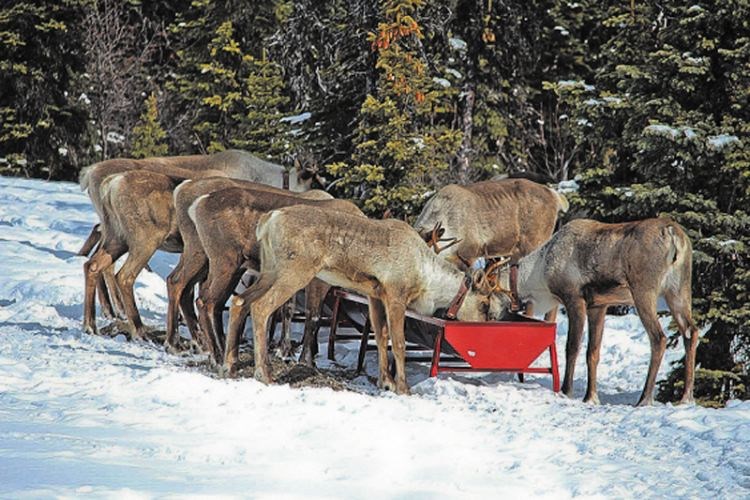A group led by First Nations in the South Peace wants to crowdsource $50,000 to continue a project aimed at saving the Klinse-Za (clin-see-za) caribou herd from extinction.
The herd has been threatened by increased wolf predation, which is a result of resource development in the herd's natural territory, according to First Nations and the Ministry of Environment.
Once so plentiful they were described by First Nations elders as being like "bugs on the landscape," according to West Moberly First Nation chief Roland Willson, caribou numbers have decreased to just 1,100 in all the of the South Peace and only roughly 30 in the Klinse-Za herd.
The dwindling numbers in the territories of the Saulteau and West Moberly First Nations just north of Chetwynd inspired a penning project that began in April 2014 run by a group called the Peace Northern Caribou Committee.
For the second year in a row, pregnant caribou were captured and penned in March in an effort to decrease the number of animals lost during the critical calving season, which lasts until July.
The project in the past received support from industrial and government partners.
A caribou action plan developed in 2013 by the West Moberly First Nation came up with the project for the Klinse-Za herd.
Provincial government efforts to curb wolf predation of caribou in the South Peace have included a controversial plan to cull wolves by shooting them from helicopters with high powered rifles.
"Due to the habitat loss and upset predator/prey dynamics caused by decades of unsustainable resource development, caribou in the entire South Peace region now number only 1,100 and are in rapid decline," a 2013 release on the caribou action plan from the West Moberly First Nation states.
The Klinse-Za herd numbered less than 20 animals then, but increased in size after last year's successful maternity penning.
In April 2014, with the help of veterinarians, 10 pregnant cows were tranquilized, radio collared and enclosed in a seven hectare pen where they were allowed to give birth in a protected area, under the watch of First Nations shepherds and wildlife biologists who set up camp near the site.
They were fed a diet of lichen harvested from the area, supplemented by pellets. The young caribou and their mothers will remain in captivity until they are big enough to flee predators.
In July, 10 cows and nine calves will be released.
"By implementing the project, the First Nations partners are taking steps to avert [destruction] of the Klinse-Za herd and demonstrating the viability of maternal penning to help bolster vulnerable caribou populations in the South Peace," a release from the Peace Northern Caribou Committee (PNCC) states.
Eleven more pregnant caribou cows were safely transported to the pen on March 24 to carry out the last trimester of pregnancy and deliver their calves apart from the pressures they normally face in the wild.
"Despite being a labour of love for everyone involved, the care and attention provided to the animals does come at a significant cost," the PNCC said.



.png;w=120;h=80;mode=crop)